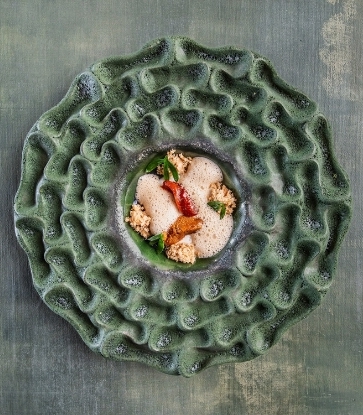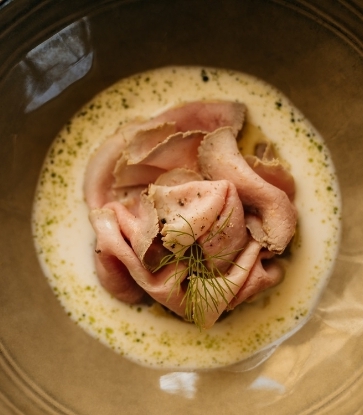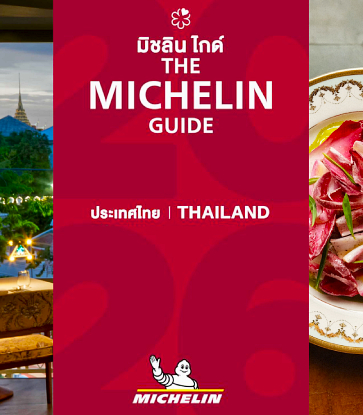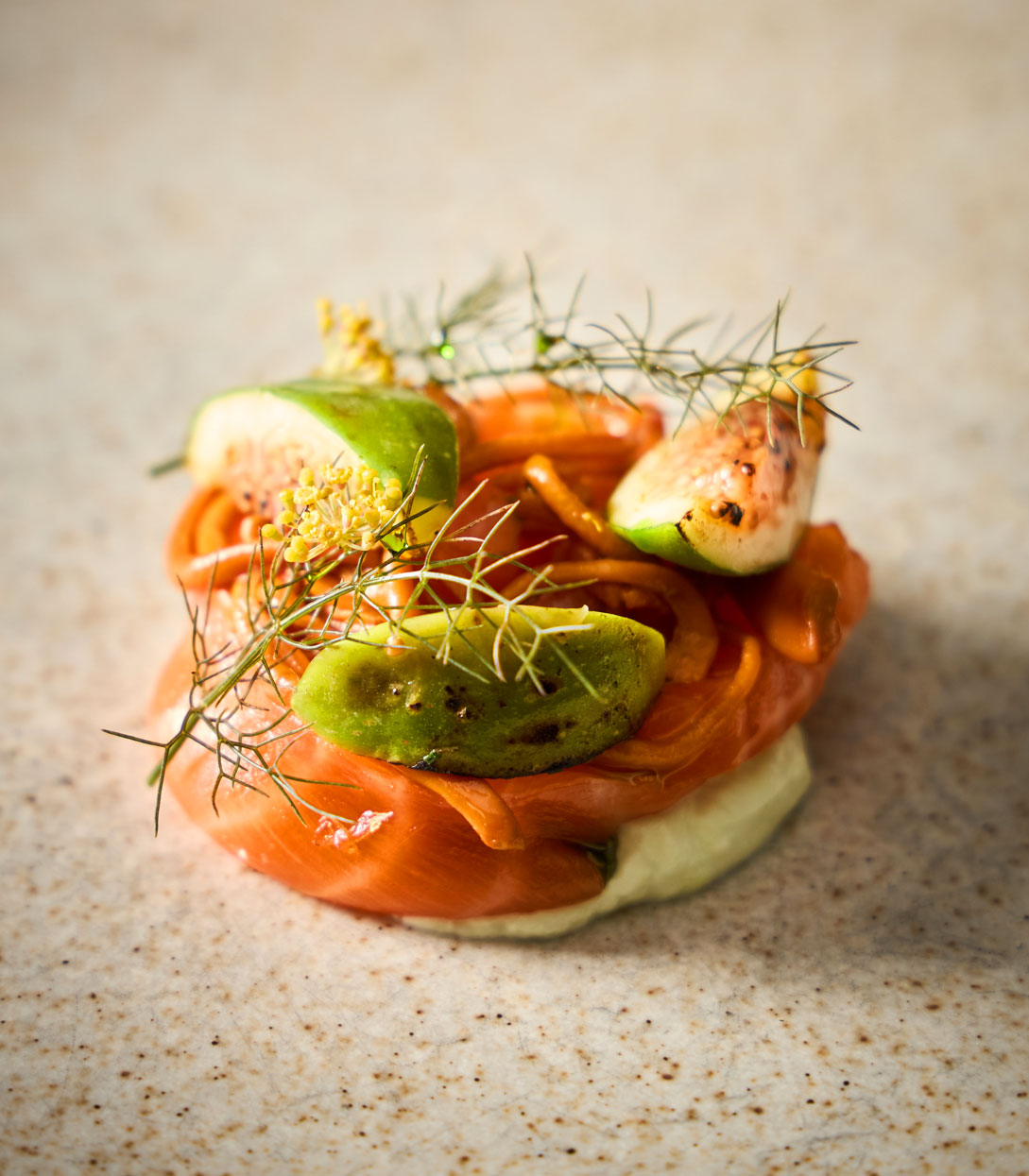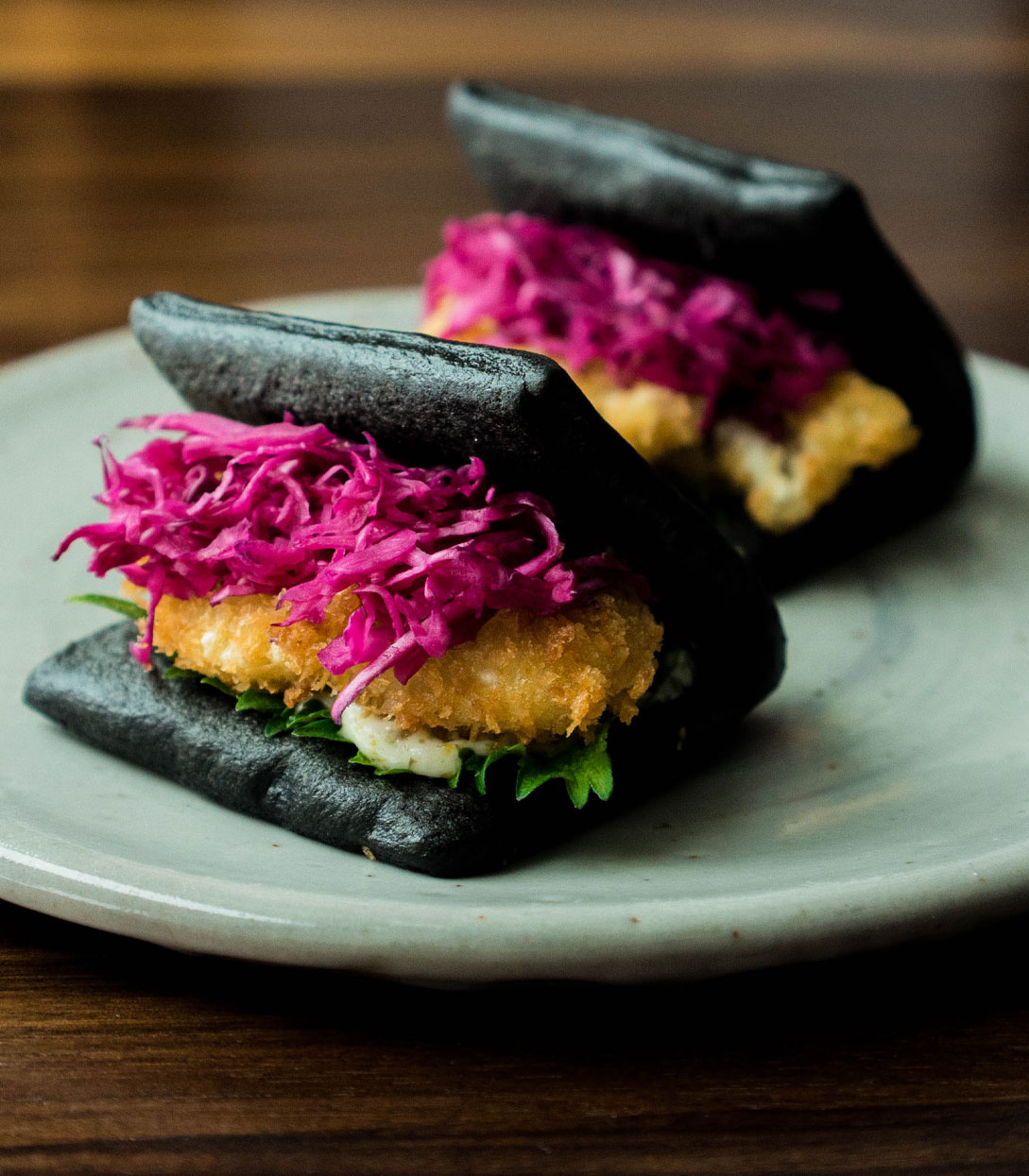Rodrigo de la Calle – El Invernadero, Madrid, Spain
“A vegan diet tends to be more sustainable than those that include meat or fish, due to the lower demand for natural resources and lower environmental impact. However, it is crucial to separate sustainability from the vegan diet.
"Sometimes we forget that although an ingredient is vegan, if it has travelled halfway around the world, it has been sourced unsustainably. The provenance and production methods of the ingredients are very important. In addition, there are many ultra-processed products that, although vegan, can have a large footprint. Without going into the preferences of each person, it is important to opt for fresh, local and always seasonal produce.”

Brian Wawryk – Traube, Efringen-Kirchen, Germany
"To us, sustainability is about questioning everything we do. Therefore, whether veganism is sustainable is difficult to answer and needs to be assessed from various perspectives. From our point of view, the focus should always be on local fruits and vegetables for a healthy and balanced diet. Unfortunately, in Germany, it is not always possible to find all the produce that would allow for a well-balanced vegan diet.
"Veganism is not sustainable for us when considering the environmental impact of transporting and producing certain foods (eg. avocado). If one were to solely follow a regional vegan diet, it would certainly contribute to improving the ecological footprint. We admire people who follow a vegan lifestyle. However, we personally enjoy a piece of cheese, freshly caught fish from the Rhine or a cut of meat from our local supplier, Mr. Meier, too. In our restaurant, the focus is on fruit and vegetables, but we do not want to create a completely vegan menu. We appreciate the complexity that Mother Nature offers us, with meat, fish and vegetarian options."

Jake Jones – Forge, Middleton Tyas, England
"At Forge, we make the most of our estate's 200-acre landscape – including our kitchen garden, raised beds and greenhouses – to create vegan dishes that highlight the fresh, home-grown flavours of our produce. This approach not only ensures quality and taste, due to minimal food miles, but also demonstrates the potential for vegan cuisine to be sustainable and exceptional.
"While it's hard for most of us to go completely vegan all of the time, it's clear that plant-based eating is a crucial part of addressing global food challenges. Encouraging veganism is a positive step towards sustainability, and we offer vegan alternatives to all of our tasting menus to not only make the most of what the estate has to offer but also create a balanced, sustainable and diverse food offering. ”

Nicolas Decloedt – Humus x Hortense, Brussels, Belgium
"Any way you look at it, veganism is more sustainable than working with meat or fish. And, as you see how the oceans are emptying, it is also increasingly difficult to find sustainable fish; although we do have some initiatives like the NorthSeaChefs who encourages the use of often-wasted fish caught as bycatch.
"So, those who eat plant-based food are more sustainable – although everyone chooses how far they go in this and how much importance they attach to the origin of their produce. On the one hand, you have those who do not mind where their produce comes from: whether it's from the farmer around the corner or flown in from Japan, it makes no difference to them. On the other side, you have people like us, who work exclusively locally and, for example, consciously choose not to work with farmers who artificially heat their greenhouses in winter.
"We realise that we cannot continue with the current way of eating. The planet has already proven that it is strong and will survive, but we also need to think about ourselves – about the problems we are saddling ourselves with. I see it as our job to speak the truth. And so, I repeat, veganism is more sustainable than eating meat or fish."

Pietro Leemann – Joia, Milan, Italy
“There is no doubt that a vegetable-based diet is the most sustainable. However we prefer not to use the word vegan in Italian, because it is outdated and doesn't express what we're really talking about. It is more appropriate to call things by their proper name – it is, after all, the name that encompasses the true meaning of something.
"Sustainability is a complex and much-used word which, in our view, needs to be further researched and analysed from a more contemporary viewpoint. In many cases, the word probably requires a new definition which would satisfy its semantic scope. The word sustainable refers to something that can be maintained economically or, more symbolically, a weight that one can carry or bear. It is also often used as a parameter for a project or an activity, either in the future or the present. It is important to take into account the presence of living beings within this plethora of different meanings and perspectives. The 'others' – whether they are human or animal – who are involved in maintaining this sustainability are not 'objects' for consumption or mere food, but 'subjects' who, like us, benefit from creation and have a right to life.
"Would it not be wonderful to transform the fields where cereals and pulses are cultivated for animal feed into fields of delicious, colourful vegetables? In our opinion, sustainability equals recognition, which means looking carefully at what we choose to put on our plates. Vegetables are sustainable, peaceful, respectful, artisanal and full of flavour. They are also full of joy and possibility, as well as resolutely forward-looking.”









